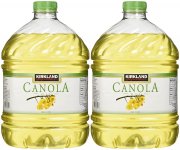bertsmobile1
Lawn Royalty
- Joined
- Nov 29, 2014
- Threads
- 65
- Messages
- 24,995
Bange,
What you are missing is the fact that the API ( or any other standards association ) ratings are assigned according to how the oil ranks during a series of standard tests .
Almost none of these tests are actual in use engine tests.
And all of them were designed to test standard refined mineral oils, not synthetic oils created from gases.
Synthetics do substantially better in the 3 ball test and have a substantially lower ash content
What you are missing is the fact that the API ( or any other standards association ) ratings are assigned according to how the oil ranks during a series of standard tests .
Almost none of these tests are actual in use engine tests.
And all of them were designed to test standard refined mineral oils, not synthetic oils created from gases.
Synthetics do substantially better in the 3 ball test and have a substantially lower ash content

